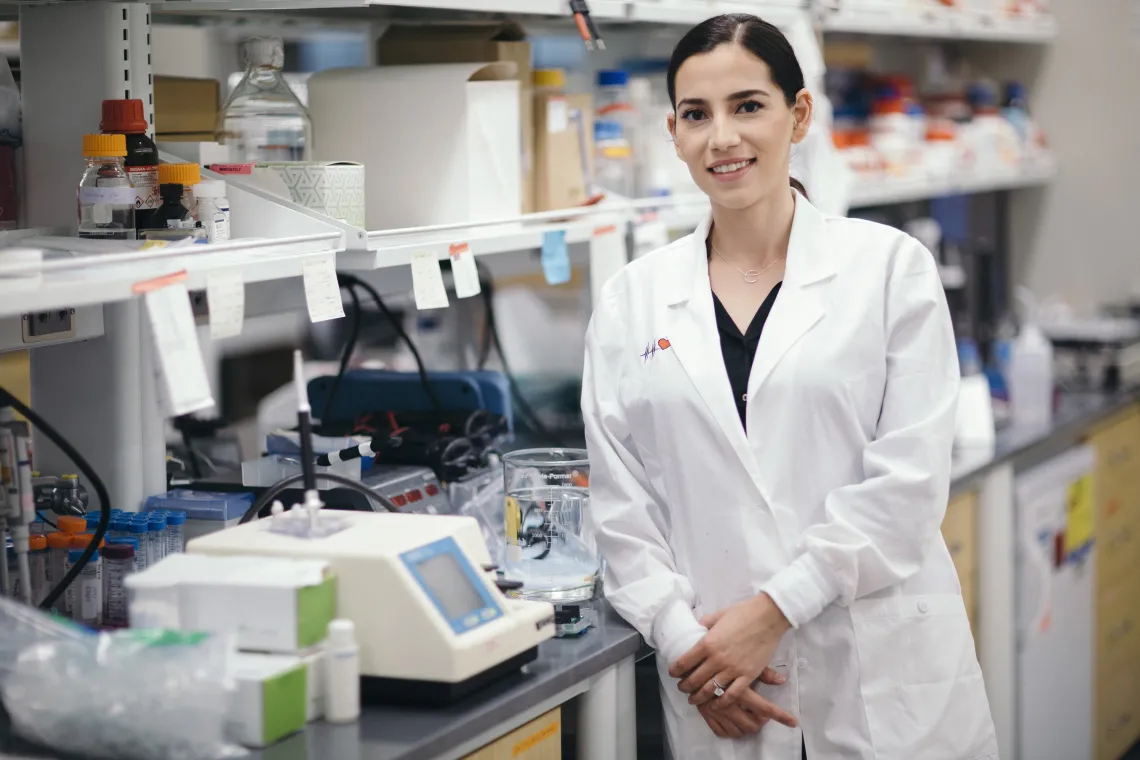Discovering a Calling

Sandra Grijalva ’14 arrived at the University of Arizona from her hometown of Phoenix with an interest in engineering and math, but she didn’t know where or how far her potential might take her.
“Not 1% of me knew I would go into a Ph.D. program when I was an entering undergraduate,” she says.
First, Grijalva discovered biomedical engineering and a deep fascination for learning and applying knowledge about the human body. Then, she experienced her first taste of scientific research when she participated in a National Institutes of Health project over the summer — and found herself hooked.
“I thought, ‘This is incredible. I can’t believe people can do this,’” she says.
Grijalva relished working with a mentor who showed her she could make meaningful contributions to published health research. She started seeking year-round opportunities and got involved with the Arizona’s Science, Engineering and Math Scholars program at the university.
ASEMS helped Grijalva find several research experiences, some of which were paid, as well as other programs that led to more assignments. She graduated with an impressive resume as a research assistant, which was critical to her admission into a dual doctoral program at Georgia Tech and Emory, ranked No. 2 in the country at the time.
But Grijalva gained more than experience. She credits ASEMS with providing the community and support she needed to confront imposter syndrome and become a confident researcher and scientist.
“A lot of first-generation minority students deal with this because we don’t have family members that have these types of roles. So you almost don’t think you’re good enough to do it. But it was great to always have that conversation brought up,” she says.
For the past year, Grijalva has been a biomechanics consultant for Exponent in Phoenix, investigating the causes of accidents and researching ways to prevent injuries. She sees herself as a detective who brings medical knowledge together with engineering to explain how forces and objects have acted on, or are likely to act on, the body.
The work, Grijalva says, is fulfilling. “Every day is so different. I love that. I’m able to use a lot of critical thinking and problem-solving.”
ASEMS helped Grijalva find several research experiences, SOME of which were paid, as well as other programs that led to more assignments.
Award-Winning Support
The UArizona program Arizona’s Science, Engineering and Math Scholars received the 2020 Examples of Excelencia award from Excelencia in Education, a national organization focused on accelerating Latino student success in higher education.
ASEMS, which is supported by donors and grants, provides services to more than 400 students majoring in STEM fields who are first-generation or community college transfer students, those from low-income households, and students from underrepresented groups, such as women and minorities.
Students in ASEMS work with staff, peer mentors and faculty fellows. They’re also highly encouraged to engage closely with faculty on research.
Although all ASEMS students have the ability to succeed, says ASEMS Founding Director Kimberly Sierra-Cajas, they aren’t necessarily aware of the numerous careers available in STEM fields. Like Grijalva, many undergraduate students haven’t heard about or considered pathways at which they could excel. Many also discover they enjoy research once they engage with it, she says.
“We provide a connection to STEM careers that hopefully are related to something they’re passionate about,” Sierra-Cajas says.
